I Served My Country...and Wound Up Living in My Car
After a downward spiral into homelessness and drug addiction, here's how I dug myself out. Read about more reversals of fortune:I Tackled a Powerful Family LegacyI Had an Unthinkable Disease...and Made Myself Better
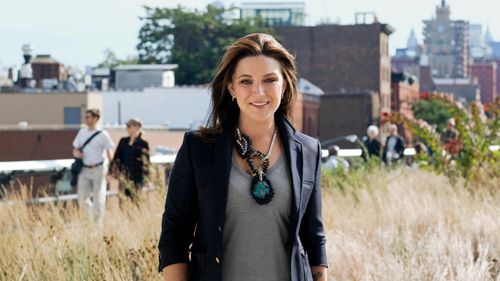
I woke up around 7:00 A.M. to the sound of someone knocking on the window of my Volkswagen. It was the police. They asked if I was OK, then asked me to move on. I'd spent the night parked outside a shopping center—not because I'd been too sleepy to drive home, as I'd told the officers, but because I was home. I was living in my car.
When the police left, I sat for a minute, watching churchgoers walk into a nearby restaurant for breakfast. Sweating in the Sunday-morning sun, I glanced in the rearview mirror and saw someone I hardly recognized. I didn't see a 22-year-old war veteran; I saw a piece of garbage.
I thought back to how it had all started, five years earlier, with a blue-eyed female Army recruiter who had come to my small-town high school in Downingtown, PA, when I was 17. I looked at her and thought, If she can do it, so can I. My first day of basic training came on September 11, 2001, the day the World Trade Center fell.
On that day, I was sitting in the Army reception office at Fort Jackson in South Carolina, when suddenly the drill sergeants started running around like crazy. Soon after, they put me into formation with the other new recruits, called attention, and said, "America has been attacked, and the Twin Towers have fallen. We're going to war." Then they said, "Left face," and we marched. We were instructed to call home to let our families know we were not in harm's way. During that call, my mom told me a little about what had happened on 9/11, but over the next three months, we weren't allowed to watch television or read any newspapers or magazines, so I didn't see the footage from that terrible day until I went home for Christmas break. I was shocked when I did.
I arrived in Afghanistan in March 2003. When our plane landed, the hot sun hit us hard in our full gear—boots, flak jackets, long-sleeve shirts, Kevlar helmets, rucksacks. I looked around and saw...nothing. We were in the middle of the desert; it was 122 degrees.
My unit got attacked two weeks later. It was 2:00 in the morning when the first explosion rocked the base. I ran out of my tent and saw a huge flash of light—a mortar that had been launched from the mountains surrounding us, likely by the Taliban. Over the next few weeks, these attacks became a regular occurrence.
I saw so many gruesome sights. Wooden wagons would roll by carrying wounded civilians—some with brain matter hanging out of their heads—to the hospital on our base. After about a month-and-a-half, the stress started to take its toll. I fell into a deep depression and stopped eating. I became profoundly dehydrated. One day I fainted, hit my head on the bathroom floor, and wound up in the hospital. I had gone from 180 pounds to 106. My heart rate lying down was over 150, meaning my heart was working way too hard. The doctors said I could die of a heart attack by age 20. As I lay on my cot, I looked over at the young boy next to me; he had no arms or legs, and blood poured through his bandages as he screamed. Beyond his bed lay rows of children with missing limbs.
Stay In The Know
Get exclusive access to fashion and beauty trends, hot-off-the-press celebrity news, and more.
The doctors sent me to a medical center in Germany. On the flight, I watched my colonel, who was also on his way to the center for treatment, go into cardiac arrest and die right beside me.
After two weeks in Germany, in mid-October, I got shipped off to Washington, D.C., and then to Fort Dix in New Jersey, where I received an honorable discharge, on December 20, 2003.
What's when my problems really began.
When you come home from war, you don't know where you fit in. My friends and family in Downingtown didn't understand what I'd gone through, so I slowly began distancing myself from them. If nobody's going to understand what you're saying, why say it?
Nighttime was another issue. I would relive my war experiences the second I closed my eyes—I'd have visions of that first attack on my base, those screaming children, my dying colonel.
In January 2004, someone offered me cocaine at a party. The coke kept me awake all night. Suddenly, I saw a solution to my nightmares: I would simply stop sleeping. I quickly drifted into the life of a druggie, living with a boyfriend in a rented room, bartending, dealing. I didn't tell my family what was going on.
A year-and-a-half later, in August 2005, my friend Steve, a Marine who'd fought in the Gulf War, died in a motorcycle accident. His death devastated me. He had been the only person who could understand me as a soldier. I attended his funeral in my military uniform, high as a kite.
Then one afternoon, I ran into an old friend while buying a McDonald's Dollar Meal, the only thing I could afford. I admitted that I was in a bad way, and she said, "You're a vet—contact the VA!" I knew there was a Veterans Affairs office just 10 minutes away; I'd been there briefly when I'd first come home, but I didn't know about the VA substance-abuse programs. I thought about what Steve would want me to do and about how far I'd fallen. And I decided to make the leap. So, more than two years after becoming an addict, I admitted my problem to my mom and checked myself into a VA drug-treatment center. First, though, I finished a bag of cocaine in the parking lot. The idea, of course, was that it would be my last.
I completed two weeks of rehab, and then went to a three-month VA program for people with post-traumatic stress disorder. But after only one month there, the doctors, unbelievably, asked me to leave. They said the treatment wasn't really helping me—although I disagreed—and that as one of only two women in the group, I was distracting the male patients, who apparently found me attractive. I begged them, literally on my hands and knees, to let me stay; I knew I wasn't ready to go back into society. I knew what would happen if I tried. Incredibly, they said no.
I left the VA Medical Center and went straight to my drug dealer's house. I told him I needed something strong to get rid of my pain. That day, I started smoking crack. I hit bottom so fast, it was amazing. I went from being happy with my progress to having no hope at all. I used all day, every day. I tried to hold down jobs—bartender, waitress, receptionist—but I was so strung out that I couldn't get out of bed to go to work. When I was at work, I was high. I got fired from every job. At one point, I just quit trying.
I couldn't afford rent, I couldn't go to my mom's house unless I was clean, and I couldn't stop fighting with my boyfriend long enough to stay with him. That's how I wound up living in my car.
For several months, in exchange for drugs, I ran errands for my dealer and cleaned his home. He also asked me to be a "dancer"—in other words, dance privately for his friends and customers. Clinging to my last shred of dignity, I said no. But not long after, I had sex with him for drugs. I felt so disgusted afterward, I took out a lighter and burned the clothes I'd worn that night.
Then, in August 2006, as I was driving away from my dealer's house, seven police cars suddenly surrounded me. I was handcuffed and arrested for possession of the crack cocaine I had with me. But when I wouldn't give them the name of my dealer (which would be suicide), they eventually gave up and let me go.
The very next day, my old friends held a reunion on the anniversary of Steve's death. When I showed up, everyone stared. I was emaciated, with my eyes darting around and contusions all over my face from picking my skin, out of anxiety. When I spotted one of my oldest and dearest friends, Jason, he gently whispered, "What's wrong?" With his Timberlands, tattoos, and crew cut, he made me smile, and his simple question moved me. I told him, "I have to change my life, and I don't know how to do it."
Jason sat up with me all night. I didn't get high. I cried and I shook, and he held me, saying, "I'm not letting you leave." That night—those words—changed everything. I finally felt ready to let someone help me. I began to imagine getting clean.
Turns out, the court actually helped me in my mission. I happened to learn that the police had a warrant for my arrest, and I ended up entering a court-ordered drug program to avoid jail time. The program required me to stay gainfully employed, do random drug screenings, undergo counseling, and keep in touch with a judge. I felt determined to make it work this time. I got a job waitressing and bartending at a local restaurant, and, for the first time in years, managed to stay clean.
Six months later, I ran into Jason again, and we started seeing each other regularly. But then my drug-counseling program ended, and I couldn't afford the fees to extend it. So my counselor told me about a program she was working with in Bethesda, MD, called Give an Hour, which provides free mental-health services to military personnel. I started seeing her through the program, at no cost. I honestly don't think I would've survived without her help.
Today, I'm a spokeswoman for Give an Hour, speaking publicly about soldiers and mental-health issues. I'm married to Jason, who owns a race-car body shop, and we have an 8-month-old daughter, Hailey Marie. Yes, I still have nightmares. And if a helicopter flies overhead when I'm sitting on my porch, my mind flashes right back to those attacks on my base. It's like an out-of-body experience. The only way to control it is to breathe deeply and remind myself that I'm safe at home, which I really am. I'm back to my old self—and I'm also a new person.
Without my experiences, I wouldn't be able to reach out to troubled war veterans, especially women, and say, "If I can turn my life around, so can you." I hope that when soldiers meet me—not your typical war-veteran poster child—they will see that there is life after war, and after more personal battles, too.
-
 Combining These Two Spring Nail Trends Was a Stroke of Genius
Combining These Two Spring Nail Trends Was a Stroke of GeniusIt’s giving futuristic fashion girl.
By Samantha Holender
-
 The Elegant Blouse Fashion People Will Be Wearing With Jeans the Entire Summer
The Elegant Blouse Fashion People Will Be Wearing With Jeans the Entire SummerThe definition of a "nice top."
Partner Content Created With Who What Wear.By Natalie Munro
-
 Bangs, But Make Them Blunt—and Kerry Washington-Approved
Bangs, But Make Them Blunt—and Kerry Washington-ApprovedThe cut seen 'round the internet.
By Ariel Baker
-
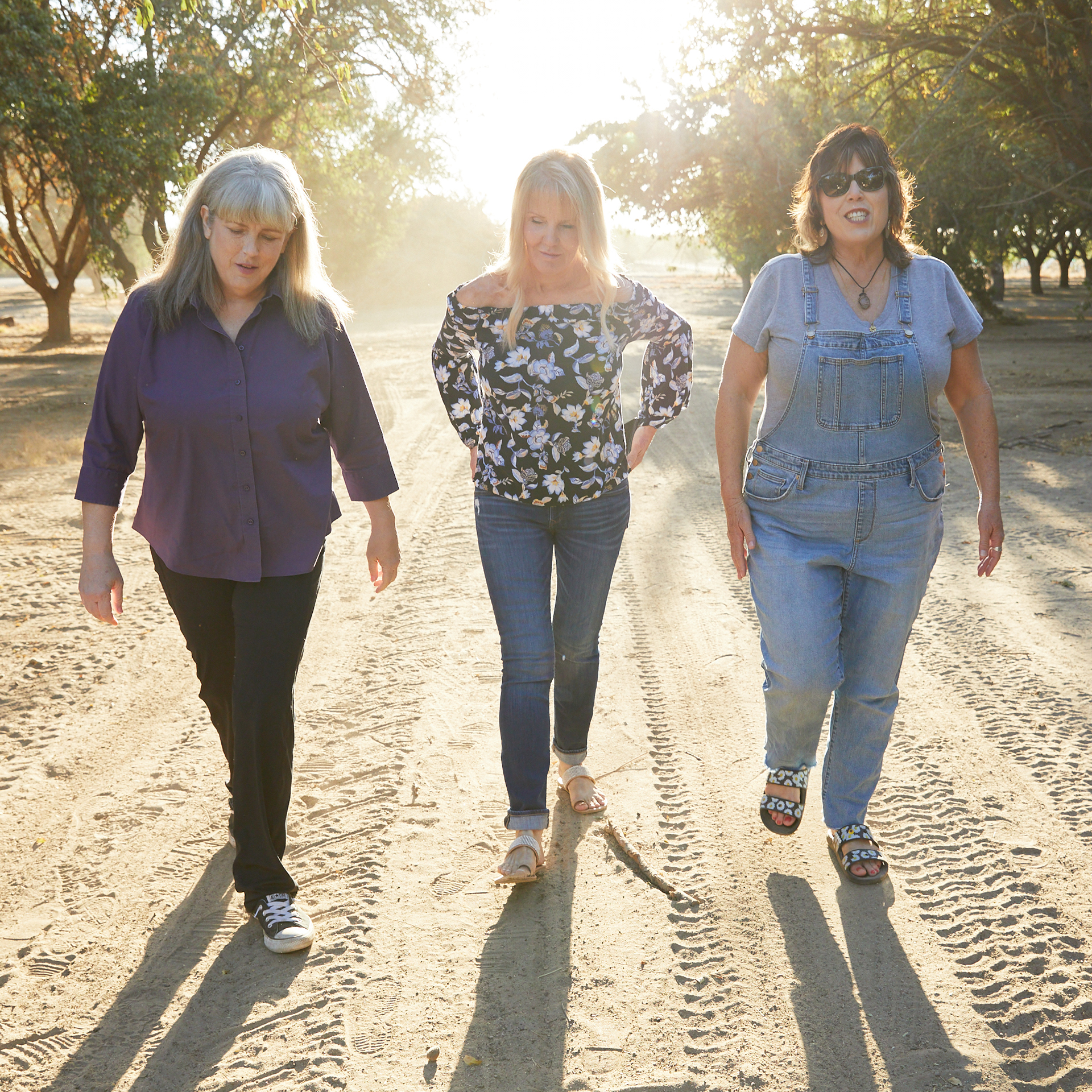 Of Murder and Motherhood
Of Murder and MotherhoodTheir children are gone but these women are united in their fight for justice and answers.
By Katya Cengel
-
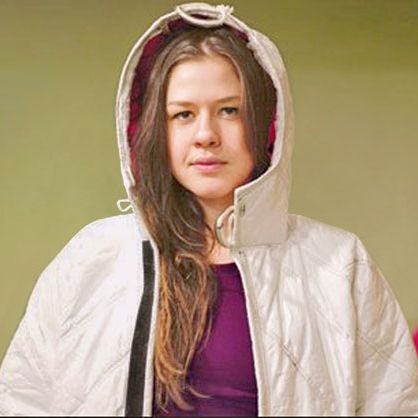 Veronika Scott: One Woman, One Brilliant Idea
Veronika Scott: One Woman, One Brilliant IdeaVeronika Scott is providing Detroit's homeless women with the skills to earn a paycheck.
By Melissa Bykofsky
-
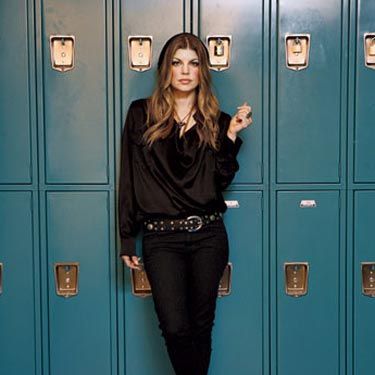 Fergie's New Fight
Fergie's New FightThink you don't need to worry about AIDS? Reality check: Women make up more than 25 percent of new cases in the U.S. In a Marie Claire exclusive, Fergie tells how her own battles with drug addiction inspired her to help people with HIV.
By Abigail Pesta
-
Lost Girls of the Jungle
By Andrew Marshall
-
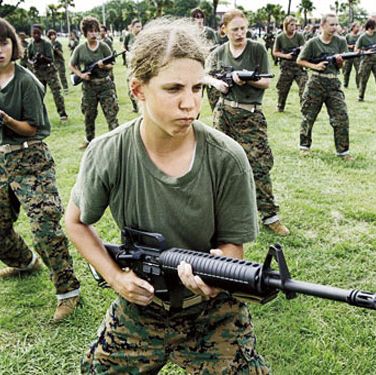 Life as an American Female Soldier
Life as an American Female SoldierHair falling out, periods on hold, and peeing in a cup: for female soldiers, life on the front lines involves stuff men never have to think about.
By Tara McKelvey